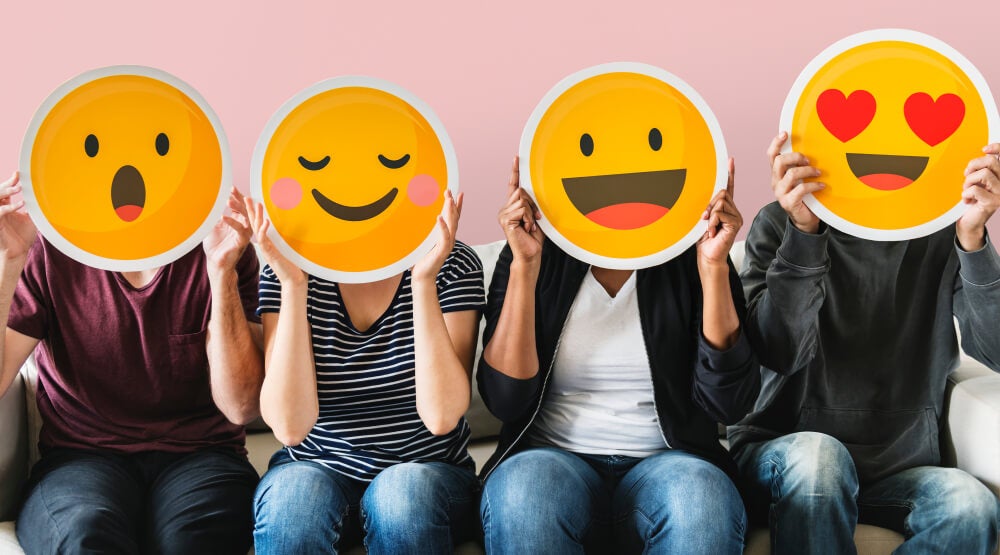The adaptive and evolutionary value of emotions is a fact, and science has already taken care to prove it. Studies by Barbara L. Fredrickson, a professor in the Department of Psychology at the University of North Carolina, have shown that fundamental emotions have an inherent effect. adaptive function Are there then inappropriate emotions?
These discoveries lead us to a logic that there are no inappropriate emotions, but in some cases there may be topographically inappropriate emotions, such as very intense or very frequent appearances in different situations.
- All emotions have a function that makes them useful.
- No matter how much fun they can generate.
- Even the most unpleasant emotions play an important role in social and personal adaptation.
- So we may not be able to talk about inappropriate emotions.
Our emotions are the product of an evolution sensitive to the properties of the outside world, however, not everything is under our control in this genetic equation called emotion, we can try to interact with emotion and adapt it to the context, that is, we can have the ability to manage energy and its message.
“Every emotion has its place, but it shouldn’t interfere with proper action. “Susan Oakey Baker.
Jorge Bucay says that many were born out of our choice and that therefore we are not responsible for their appearance, however, we are responsible for how we act accordingly, we will all feel as many emotions as possible in the emotional range learned by our ancestors and acquired phylogenetically by our brains.
It is important to explain that everyone, at some point in their lives, has felt the most judged emotions, such as jealousy, anger, anger or sadness. will benefit from them.
I wish I could say that feeling jealous can be a good thing, and even that feeling happy can be bad depending on the situation in which we live these emotions, but the most correct conclusion is that feeling emotions is neither good nor bad. but something evolutionary, and that only what we do with it is something that can be suppressed or praised.
We already know from the evolution of science that there are no inappropriate emotions, but there are inappropriate behaviors. As an example, we can use the emotion of anger. No one is safe, no one will be free to get angry eventually. it’s an emotion of our biological repertoire that has helped us evolve as a species and get here. Anger helps us in situations where neural activity, muscle and heart rate rates need to be increased.
Anger is therefore necessary as emotion, but what we do with it can be somewhat unad adaptive, we may be angry for a thousand reasons, but we will decide to act one way or another, for this we need to understand why we are experiencing these emotions and manage the possible responses in our repertoire. We are not responsible for feeling angry, but for what we do with your energy and message.
“Emotional education must be and will be education that frees us from so much unnecessary suffering, created only by ourselves. “
As we have seen before, emotions are neither good nor bad; Context and person form such a general but very specific equation. In the previous paragraphs, we talked about the adaptive value of emotion. Just as emotions can help us a lot, they can also be a source of conflict and disruption when we handle them poorly.
Unpleasant emotions have adaptive value, make us more cautious or more cautious, or give us the impetus to defend our rights; However, at the same time, they are also causing many emotional problems, so we have spoken wrongly about the inappropriate emotions.
For example, anxiety is an emotional state that results from adaptive pressures during evolution and that ensured the survival of individuals by giving them the opportunity to deal with threatening or potentially dangerous situations in the best possible way.
This emotional state gives rise to a wide range of possibilities: from simple surveillance to a potentially threatening stimulus to vigorous responses that accompany, for example, a panic attack.
When do these states exaggerate?They generate pathologies such as generalized anxiety disorder, phobias, panic attacks and many other disorders. included in the fifth version of the Diagnostic and Statistical Manual of Mental Disorders.
“People react predictively, especially when they don’t have time to think. “Keith Ablow.

